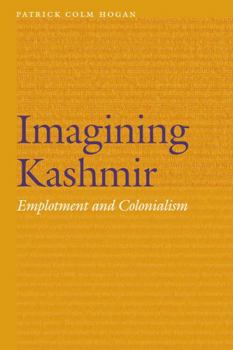Imagining Kashmir: Emplotment and Colonialism
During the 1947 partition of the Indian subcontinent, Kashmir--a Muslim-majority area ruled by a Hindu maharaja--became a hotly disputed territory. Divided between India and Pakistan, the region has been the focus of international wars and the theater of political and military struggles for self-determination. The result has been great human suffering within the state, with political implications extending globally. Imagining Kashmir examines cinematic and literary imaginings of the Kashmir region's conflicts and diverse citizenship, analyzing a wide range of narratives from writers and directors such as Salman Rushdie, Bharat Wakhlu, Mani Ratnam, and Mirza Waheed in conjunction with research in psychology, cognitive science, and social neuroscience. In this innovative study, Patrick Colm Hogan's historical and cultural analysis of Kashmir advances theories of narrative, colonialism, and their corresponding ideologies in relation to the cognitive and affective operations of identity. Hogan considers how narrative organizes people's understanding of, and emotions about, real political situations and the ways in which such situations in turn influence cultural narratives, not only in Kashmir but around the world.
Format:Hardcover
Language:English
ISBN:080328859X
ISBN13:9780803288591
Release Date:October 2016
Publisher:University of Nebraska Press
Length:294 Pages
Weight:1.29 lbs.
Dimensions:0.8" x 6.0" x 9.0"
Customer Reviews
0 rating





